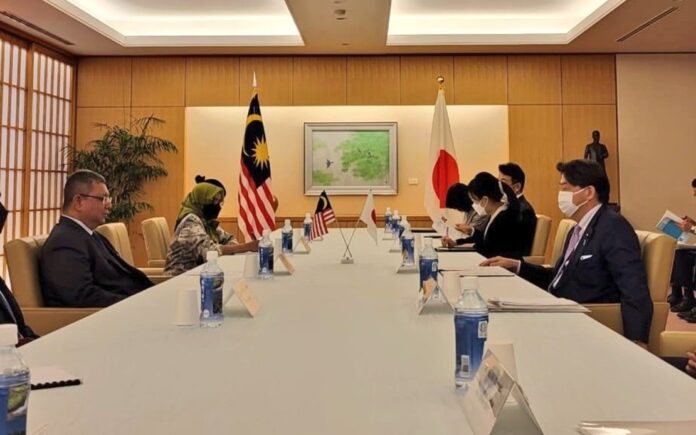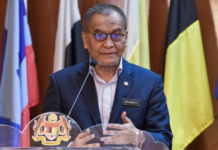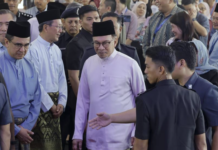KUALA LUMPUR, May 26 — Malaysian Foreign Minister Datuk Seri Saifuddin Abdullah and his Japanese counterpart Yoshimasa Hayashi have agreed to work together in further developing the Look East Policy, taking into consideration the demands of the times and Malaysia’s priority policies, including the area of digital economy.
The matter was discussed during Saifuddin and Hayashi’s meeting in Tokyo on Wednesday, in conjunction with Malaysian Prime Minister Datuk Seri Ismail Sabri Yaakob’s official working visit to Japan, said a statement issued on Thursday by the Japanese Embassy in Kuala Lumpur.
“Minister Hayashi stated that the Look East Policy is the cornerstone of the development of Malaysia and the candid relations between the two countries,” the statement read.
It said, Hayashi also requested cooperation from Malaysia for an early opening of a branch campus of the University of Tsukuba, adding that Saifuddin expressed his intention to cooperate on this front.
Both ministers also confirmed the importance of bilateral cooperation, such as the third country training on maritime safety, as well as enhancement of security cooperation.
2022 marks the 65th anniversary of the establishment of diplomatic relations between Malaysia and Japan and the 40th anniversary of the Look East Policy.
On the regional front, Hayashi expressed his intention to enhance cooperation in the priority areas of the ASEAN Outlook on the Indo-Pacific (AOIP) as well as those in the Sulu-Celebes Seas towards achieving a Free and Open Indo-Pacific (FOIP).
Regarding the situation in Ukraine, Hayashi stated that Russia’s aggression against Ukraine represented a grave challenge to the rule of law and that violations of sovereignty and territorial integrity must not be tolerated.
“The two ministers then confirmed that unilateral change of the status quo by force is unacceptable in any region, and concurred that the two countries would coordinate to deal with the impacts on the world economy, alongside condemning the aggression,” it said.
According to the statement, Hayashi also expressed his strong opposition to unilateral attempts to change the status quo by force in the East and South China Sea as well as economic coercion.
“On top of that, the two ministers confirmed that they would work together in order to maintain maritime peace, stability and prosperity,” it added.
Both ministers confirmed that they would continue to collaborate in response to North Korea’s nuclear and missile activities such as ballistic missile launches as well as the abductions issue.
Both ministers concurred to coordinate in response to regional and global challenges, such as the situation in Myanmar, Indo-Pacific Economic Framework for Prosperity (IPEF) and the United Nations reform including the Security Council reform, the statement said.



















